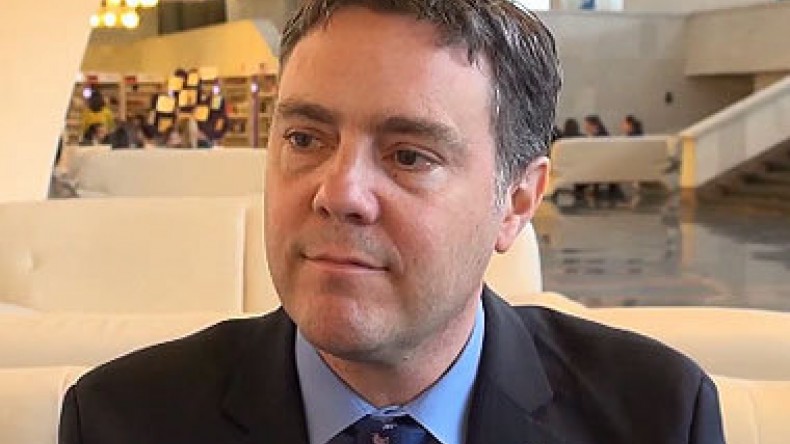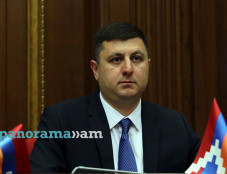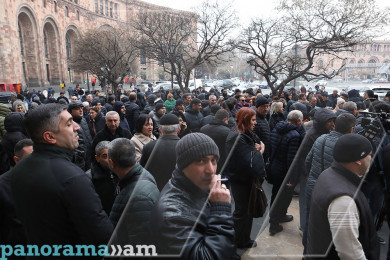
Patrick Dumberry: Turkey is exact same state as Ottoman Empire under international law
In the framework of the Armenian Genocide Centennial a Global Forum Against the Crime of Genocide was held in Yerevan on 22 – 23 April. The forum featured over 600 participants from more than 50 countries, among them scholars, experts, high-ranking officials, parliamentarians, clerics and others who discussed various aspects of genocide.
Nvard Chalikyan from Panorama.am has conducted a series of interviews with the international guests.
Below we present to your attention interview with Dr. Patrick Dumberry, Professor of law at the University of Ottawa (Canada), on the issue of sate succession in the case of Turkey and other legal aspects concerning Armenian Genocide reparations.
Professor Dumberry, who has examined this issue in detail, says that “Turkey is the exact same state as the Ottoman Empire”. This link is important when the question of paying reparations for the Armenian Genocide is raised.
“Under the international law there is that link and they cannot deny [it]. Potentially there is also the issue of compensation that would arise from this crime, even if it were committed a hundred years ago, that doesn’t matter”, - he says, noting that some Turkish scholars have recently also admitted that this link between Ottoman Empire and Turkey does exist.
Dr. Bumberry addresses the arguments advanced by Turkey aimed at denying Turkey’s responsibility for the criminal acts of the Ottoman Empire, and presents counter-arguments to these claims.
Contrary to the argument that Turkey has changed so much as a state and as a society that it does not bear any responsibility for the acts of the Ottomans, Dr. Dumberry says that in legal terms that is irrelevant.
“What is relevant is whether or not the core of the Turkish state and nation still existed after 1923, which is the casem” he says.
He also highlights the fact that “all the states have refused to recognize Turkey as a new state” and “they have wanted Turkey to be responsible for the wrong and also for the debt of the Ottoman Empire”, with the Lausanne treaty indicating this clearly.
Addressing the question of Sevres Treaty and the Woodrow Wilson Award as possible grounds for territorial reparations from Turkey at some point, Dr. Dumberry notes that the Award (which determined large territories for Armenia that are now Turkish territory) is valid under the international law, however he warns that the issue of borders is a very sensitive and explosive one. He therefore does not advise Armenia to pursue the path of changing borders as a means of reparations, as he believes this will not be feasible politically and will lead nowhere. Dr. Dumberry instead advises to seek reparation, restitution of Church property or restitution of lost houses as well as a global settlement of money to be given to the victims.
He also notes that the legal paths to address this issue are very limited. For instance in order to take the case to the International Court of Justice both parties must have consented to the jurisdiction of the court, while Turkey hasn’t done so – this means that Turkey cannot be brought to the tribunal; and there is no other tribunal or venue.
He thus believes that these issues ultimately find political rather than legal solution. So in political terms he advises to continue the path of the international recognition of the Armenian Genocide which may eventually compel Turkey to recognize it.
To the question of whether or not it is necessary for Turkey to recognize the Genocide in order for it to pay reparations, Dr. Dumberry answers that Turkey can still pay reparations by refraining from formal recognition of the Genocide. He cites the example of Germany, which did not recognize its legal responsibility for the Holocaust but recognized its moral responsibility and paid millions of dollars as compensation. So even though recognition would be desirable, it is not a necessary condition for paying reparations. But for this too a political will, he says, will be needed.
…
Dr. Patrick Dumberry is the author of over 50 publications in the field of international law, among them 'State Succession to International Responsibility’ (2007). Among his articles on this subject are The Consequences of Turkey Being the ‘Continuing’ State of the Ottoman Empire in Terms of International Responsibility for Internationally Wrongful Acts and Is Turkey the ‘Continuing’ State of the Ottoman Empire Under International Law?
Interview by Nvard Chalikyan
Related interviews:
William Schabas: Term Genocide may be applied to events of 1915, contrary to some governments’ claims against using it
EP Vice-President Ryszard Czarnecki on Genocide recognition: “Silence means support”






























